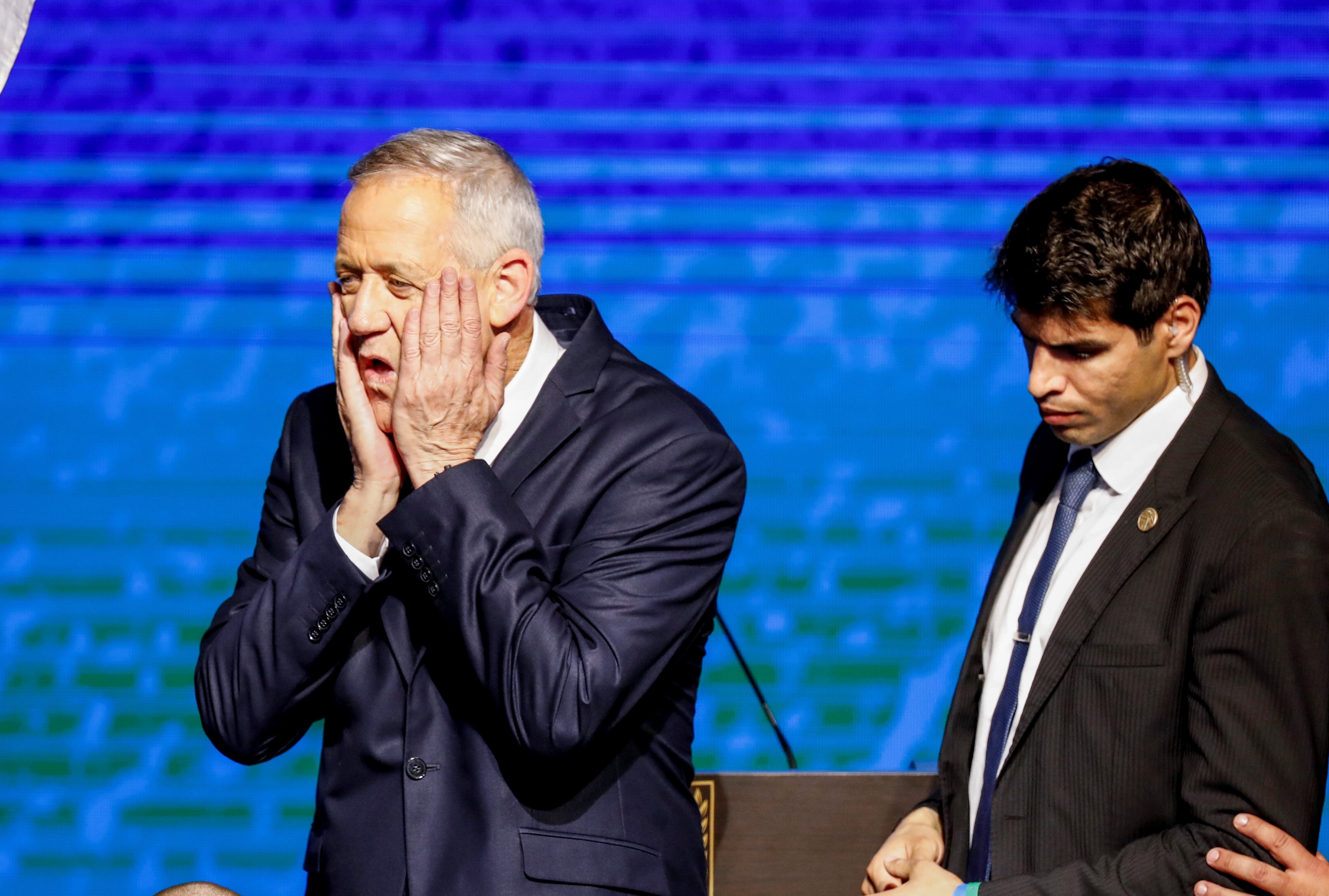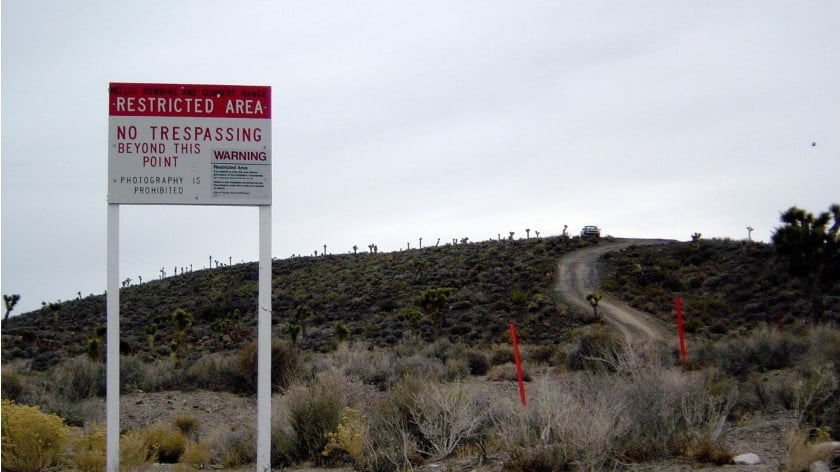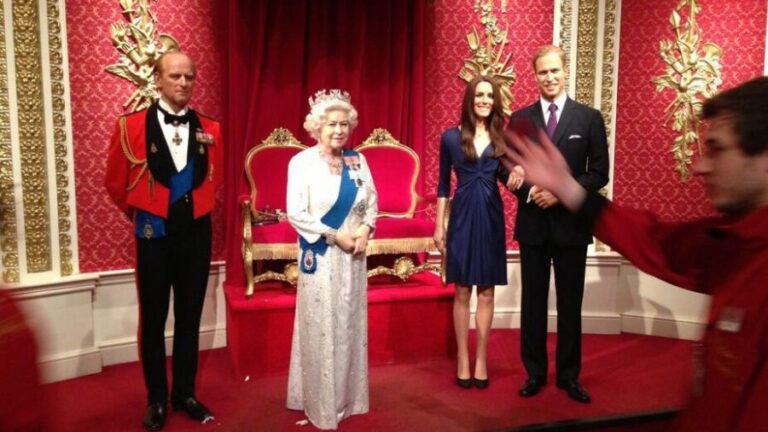Netanyahu Reigns Supreme, and the Left Is Crushed
Benjamin Netanyahu’s Likud party emerged from Tuesday’s Israeli election tied with the Blue and White party, led by Benny Gantz and other high-powered generals.
Although each party has 35 seats in the 120-seat parliament, Netanyahu is now firmly in the driving seat.
The small far-right and religious extremist parties that were needed to make up a parliamentary majority lost no time in declaring their support for Netanyahu. That will allow him to establish his fourth consecutive government.
Netanyahu now enjoys the luxury of choosing between a narrow government of these far-right parties, and a right-wing national unity government embracing Gantz. The latter option would potentially command four-fifths of the seats in the Israeli Knesset.
Whatever his decision, Netanyahu is now set this summer to become Israel’s longest-serving prime minister, beating the record set by Israel’s founding father, David Ben Gurion.
Demand for “immunity” law
The only obstacle on the horizon – a set of corruption indictments against Netanyahu, announced by the attorney-general during the campaign – is certain to be swept away once Netanyahu has been formally installed as head of the next government by Israeli President Reuven Rivlin.
Netanyahu’s coalition partners are already insisting on the passing of special “immunity” legislation – which would make it impossible to indict a sitting prime minister – as a condition for their support.
Netanyahu is now set this summer to become Israel’s longest-serving prime minister, beating the record set by Israel’s founding father, David Ben Gurion
Bezalel Smotrich, of the far-right Union of Rightwing Parties, said such a law would “build trust among coalition members that the next government can rule for a full term”.
They understand that Netanyahu, given his track record, is their best meal ticket to a long-term place in government.
And Netanyahu’s own voters have demonstrated that they care not a whit whether he is corrupt, as long as he continues to promote a Jewish supremacist agenda.
Extolling Gaza rampage
Gantz’s success in matching Netanyahu’s tally of seats is impressive, given that he presided over a brand new party whose only policy seemed to be: “It’s time to get rid of Netanyahu.”
That showed there is a significant section of Israeli society fatigued by a decade of Netanyahu rule and the political and personal corruption he embodies.
But it also emphasised the continuing veneration by Israeli Jews of the army and its desire to find exclusively military solutions to political problems – not least, how to reach an accommodation with Palestinians and their claim to statehood.
It certainly does not, as some observers have claimed, signify an appetite among Israeli Jews for left-wing politics. Gantz and his fellow generals are not doves of any kind.
After all, the Blue and White party’s main selling point was Gantz’s pulverisation of Gaza in 2014, when he was army chief of staff in a military operation that killed more than 500 Palestinian children.
Collapse of opposition
Netanyahu’s victory is underscored by the two most dramatic trends of the election. Those relate to the collapse of the opposition to the right – both among the Jewish electorate, and among voters belonging to the Palestinian minority, a fifth of Israel’s population.
In many ways, the most shocking result is the diminishment of the Labor Party, which founded Israel and ruled it for decades, to just six seats. That turns it into a marginal, special-interest party.
The most shocking result is the diminishment of the Labor Party, which founded Israel and ruled it for decades, to just six seats
Combined with the four seats of the dovish Meretz party, that reduces what is commonly referred to in Israel as the “centre-left” to just 10 seats. According to a recent poll by the Israel Democracy Institute, only about 12 percent of Israeli Jews are still prepared to describe themselves as left-wing.
It is hard to see Labor ever recovering. If the trend continues, Labor and Meretz may need to merge in future elections to ensure they pass the polling threshold.
The ‘leftwing threat’
The mistaken description of Labor as belonging to the left is a legacy of its early connections to European socialist parties and its development of a centrally planned economy in Israel’s first decades.
Labor’s emphasis on ethnic politics and communal segregation – the idea that Jewish and Palestinian citizens should live and learn apart – would have earned it a classification as an ultra-nationalist party anywhere but Israel.
Nonetheless, Labor has in the past signalled that it wants to separate from parts of the occupied Palestinian territories, chiefly as a way to ensure that an expanded Israel – one that includes some of the larger, illegal settlements – remains overwhelmingly Jewish. Its policies have also been constrained, relative to the right, by concerns about Israel’s image abroad.
By shifting the political centre of gravity ever further rightwards, however, Netanyahu has clearly established the idea in most Israeli voters’ minds that Labor is an extremist left-wing party that threatens to bring about the end of a Jewish state.
‘Eliminating the Israeli state’
That was highlighted in the previous election, when Netanyahu not only fearmongered among Jewish voters that Palestinian citizens were coming out to vote “in droves”, but falsely blamed the left for “bussing” them to polling stations.
This process reached new levels of absurdity – and danger – in the current election campaign.
Netanyahu repeatedly warned that Gantz’s party – dominated by generals and extolling its security record in crushing Palestinians – was part of the centre-left.
Netanyahu argued that a vote for Gantz would result in Israeli-Palestinian parties acting as kingmakers in the next government and thereby help to “eliminate” the state of Israel.
Historic low turnout
The four Palestinian parties in the election race, running this time on two slates rather than as a single Joint List, have also struggled. They looked set to scrape through with a total of 10 seats, down from 13 in the last Knesset.
That is because turnout among Israel’s Palestinian citizens hit a historic low in this election; initial figures suggested it could be below 50 percent. This was markedly the most lacklustre campaign ever seen in Palestinian communities in Israel.

The polling figures contrast sharply with voting rates among the minority of close to 90 percent back in the 1960s, and of 75 percent just two decades ago, as well as a turnout of 85 percent in local authority elections just a few months back.
The collapse of the vote marks the minority’s near-complete disillusionment with Israeli national politics, and their conclusion that a fundamental and irreversible rift has taken place with the Jewish majority.
Hidden cameras spy on voters
That was made clear last summer, when Israel passed the nation-state law, which made explicit that Israel was a state belonging exclusively to Jews, rather than to all Israeli citizens – thereby cementing the minority’s status as unwelcome spectators in a “Jewish democracy”.
As one Palestinian analyst noted to the daily Haaretz newspaper, Israeli politics is now like a perverse football game, in which there are two Jewish teams and Palestinian citizens serve as the ball. “Everybody’s kicking us and neither team wants us,” he said.
Netanyahu underscored that point on election day itself, when he pulled another of his incitement stunts against the Palestinian minority. He sent more than 1,000 activists armed with hidden video cameras to monitor polling stations in Palestinian communities.
It was a gross violation of Israel’s election laws. But publicity over the cameras’ confiscation by police was another coup for Netanyahu’s fear-based politics.
He defended the move as ensuring the election’s conduct was “kosher”, the term used to denote food that accords with strict Jewish dietary laws.
Like his earlier “droves” comment, it sent a clear message that the very presence of Palestinian voters subverts a democratic process intended for Jews only, and that the extreme right he represents is uniquely prepared to take the necessary action to defend a Jewish state.
Palestinian parties ostracised
Netanyahu, however, cannot be solely blamed for this state of affairs. Previously the Labor Party, and now Gantz’s party of generals, actively conspired in Netanyahu’s carefully crafted narrative, presenting Palestinian citizens as a fifth column.
Gantz repeatedly distanced himself from the Palestinian parties in response to Netanyahu’s incitement, vowing to sit only with “Jewish and Zionist” parties.
Effectively, with that promise, he not only shot the Palestinian minority in the head, but himself in the foot. It meant he never stood a hope of winning enough seats to provide an alternative to Netanyahu.
Now, it seems, Israel’s 1.8 million Palestinian citizens have fully absorbed the lesson: that all the Jewish parties, bar the four-seat Meretz party, have stripped them of a legitimate claim to political rights inside a Jewish state.
Haggling over annexation
There are a few other significant take-homes from the results.
Religious extremist parties are now the kingmakers on the right. Between them, they won more than a fifth of the parliament. Netanyahu will almost certainly need them in the government, and they will demand socially influential ministries, further accelerating the shift to religious fundamentalism in Israel.
In the run-up to the coalition-building negotiations, one such party representing religious settlers has already demanded that it be given the education and justice ministries.
Netanyahu is also in a weak position to resist – assuming he wished to – the demands of the far-right parties to begin the process of formally annexing significant parts of the West Bank.
Media reports are already suggesting that post-election haggling will focus on demands from these far-right parties for some form of annexation, in return for their agreeing to pass immunity legislation to shield Netanyahu from corruption indictments.
That explains his comments in the last days of the campaign, in which he promised to annex swaths of the West Bank where the settlements are located.
As Netanyahu’s hold on power became clear on Tuesday, he made a speech encapsulating his style of speaking with a forked tongue. He told the crowds: “I intend to be the prime minister of all the citizens of Israel, right and left, Jews and non-Jews.”
To outsiders, it may have sounded conciliatory. To those in Israel who know Netanyahu, it sounded more like a threat from a man who understands that there is no one in Israel – right or left, Jew or non-Jew – in a position to resist his dictates.
By Jonathan Cook
Source: Middle East Eye








